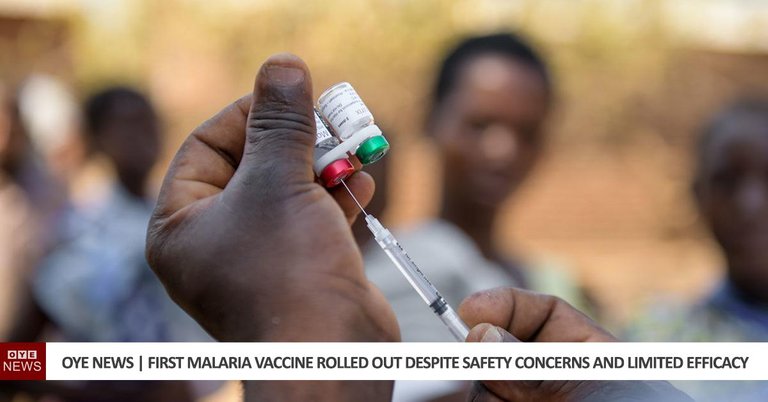First Malaria Vaccine Rolled Out Despite Safety Concerns and Limited Efficacy

RTS,S, also known by its brand name, Mosquirix, targets Plasmodium falciparum, the most common and most lethal of four malaria parasite species. With deaths declining over time the development for the vaccine has stalled, but now it's here - But does it work and more importantly, is it safe?
Four doses of the vaccine will give just a 30% chance of protection against severe malaria for up to 3 years, and furthermore experts are concerned that the vaccine only provides postponement of the disease.
But efficacy is not the worst of it, the safety concerns are far more worrisome.
In the largest trial, children who received Mosquirix had a risk of meningitis 10 times higher than those who received a control vaccine.
But apparently, 'The European Medicines Agency (EMA) agreed. In July 2015, it declared the vaccine was safe and effective enough to be introduced in Africa'
This pilot test of the vaccine in Africa is not a clinical trial, merely a limited use of the vaccine on a population the west has little regard for, and therefore if any major issues arise the backlash will be limited. After all, who cares about a few thousand dead African children we'll never see, right?
Mosquirix was developed in the 1980s by a team in Belgium at SmithKline-RIT, now part of GlaxoSmithKline (GSK), stimulates an immune response against a protein that occurs only on the sporozoites' surface. To bolster the response, the research team fused the vaccine protein with a hepatitis B surface protein and added an adjuvant.
But results of the first large trial, among 2000 children aged 1 to 4 in Mozambique, were promising: Malaria infections during the first 6 months after vaccination were down 58%, Cohen and his colleagues reported in a 2004 paper in The Lancet. An even larger trial enrolled 15,000 children in seven African countries between 2009 and 2011 and had mixed results. Among babies, the efficacy was close to zero. That dashed hopes that the vaccine could protect the most vulnerable group and that it could be given together with other routine infant vaccinations, Smith says. But among children between 5 months and 25 months of age, malaria infections overall were down by 40%, and severe infections 30%.
You can read more about this at Science Magazine
Originally published on our website over at OYE NEWS : https://www.oye.news/news/health/first-malaria-vaccine-rolled-out-despite-safety-concerns-and-limited-efficacy/